In the cold seasons, many people are concerned about various viral diseases, but in order to reduce the likelihood of their occurrence, it is advisable to drink a course of vitamins in the fall.
This will strengthen the immune system, as well as improve well-being and appearance generally.
What vitamins do women need in autumn ^
Avitaminosis is a condition that most often occurs in spring and autumn, when the human body lacks vitamins. It manifests itself in the form of the following signs:
- Aggravation skin diseases(dermatitis, eczema, etc.);
- Deterioration of the skin condition;
- Violation of the digestive tract;
- Hair loss and thinning;
- Increased soreness;
- Pain in limbs;
- Deterioration of concentration, absent-mindedness;
- Diseases of the teeth.

Most often, the cause of vitamin deficiency is an unbalanced diet for a long time, but there may be other provoking factors: for example, the abuse of junk food, taking certain drugs for weight loss, chronic diseases digestive organs, dysbacteriosis.
Thus, main reason beriberi is either a lack of nutrients in food, or the leaching of useful elements from the body as a result of consumption medicines. The consequences can be very different:
- Developmental delay in children;
- visual impairment;
- Anemia;
- Violation of the reproductive function;
- scurvy, rickets;
- Stroke, myocardial infarction, atherosclerosis;
- Profuse bleeding.
Which vitamins are responsible for what?
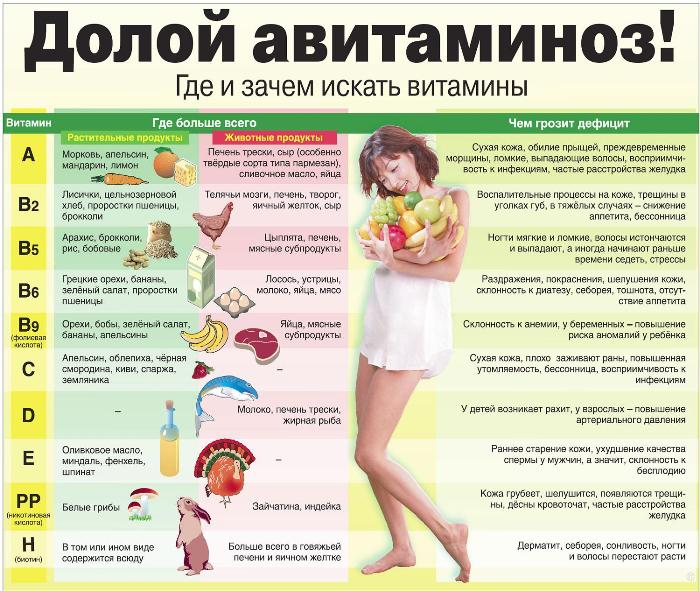
It is worth noting that in each of the seasons the body requires completely different vitamins. In addition, they all affect the body in different ways, so you need to choose them based on what it needs:
- Vitamin A is necessary for diseases of the respiratory organs. It also improves the condition of teeth, nails and skin;
- B vitamins improve the functioning of the heart, central nervous system and digestive system. Most necessary for the body in the spring, when it is exhausted by the winter cold;
- Vitamin C stimulates skin regeneration, protects the body from viral and colds, and therefore is one of the main ones in the list important vitamins for prevention;
- Vitamin D improves the absorption of vitamins A and C. It is advisable to take preparations containing it in the spring, when the body is most weakened and absorbs it better, in order to avoid overdose;
- Vitamin E prevents atherosclerosis, improves lung function. Suitable for taking at any time of the year;
- struggling with overweight, has fat-burning properties;
- Vitamin P prevents bleeding, has a beneficial effect on capillaries and gums, fights swelling and bruising;
- Vitamin T accelerates the healing of injured or burned skin, improves blood clotting.
How to know which vitamins are missing: signs of deficiency
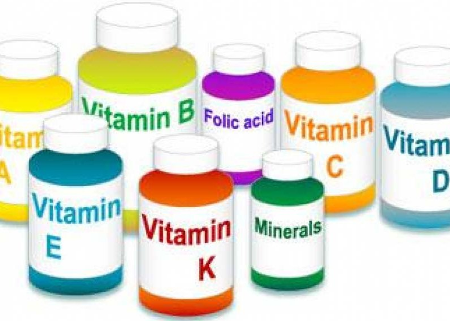
- The shortage manifests itself in increased fatigue, bleeding gums, small rash on the face and a particular tendency to colds.
- Deficiency (thiamine) is noticeable with an uncharacteristic pallor of the face for you with regular formation of bags under the eyes, increased irritability and poor concentration.
- The body's need for (riboflavin) is manifested by pallor of the lips, small cracks in the corners of the mouth, dull hair, etc.
- A typical deficiency (panthenol) is bad dream, lethargy and stratification of nails.
- Absence in the body required amount(pyridoxine) noticeable with chapped lips, oily skin and dandruff in the hair, also in a general state of debility.
- A clear sign of a lack (folic acid) is the cross-section and hair loss.
- Deficiency (nicotinic acid) is mainly displayed in greasy sheen and simultaneous peeling of the skin of the face.
- The need for (retinol) is quite clear with white dots on the nails, dull hair, acne and fine wrinkles.
- Insomnia, loss of appetite, brittleness and foliation of nails also let you know about the lack of (calciferol).
- Deficiency (tocopherol) usually manifests itself in the form of weakened hair, brittle nails, age spots on the skin and earthy color faces.
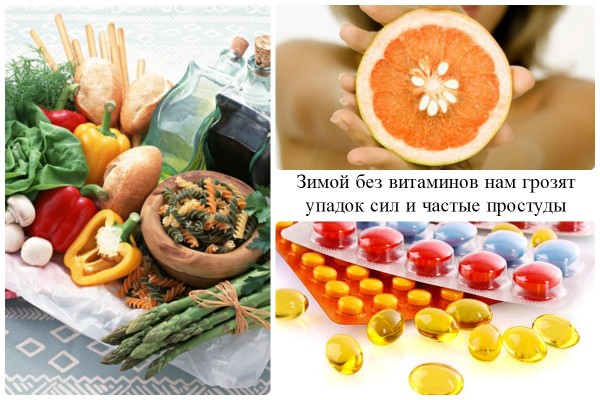
Does everyone need to drink vitamins: the most common myths
A common opinion: in summer and autumn, the body has enough vitamins, and the lack of vitamins begins in winter and worsens by spring. Even though the stores all year round you can buy fresh fruits and vegetables, including exotic ones, this is not entirely true.
It's not just about vegetables and fruits, we need to replenish the supply of vitamins constantly. In most cases, the body does not make "vitamin reserves", as it does energy ones, in the form of fat. No matter how much you eat vegetables and fruits in summer and autumn, vitamin B1 is enough for only 3-4 days, most others - for 2-6 weeks. Only fat-soluble vitamins A, D, E are stored in subcutaneous fat and liver. But they are not enough for more than 2–2.5 months.
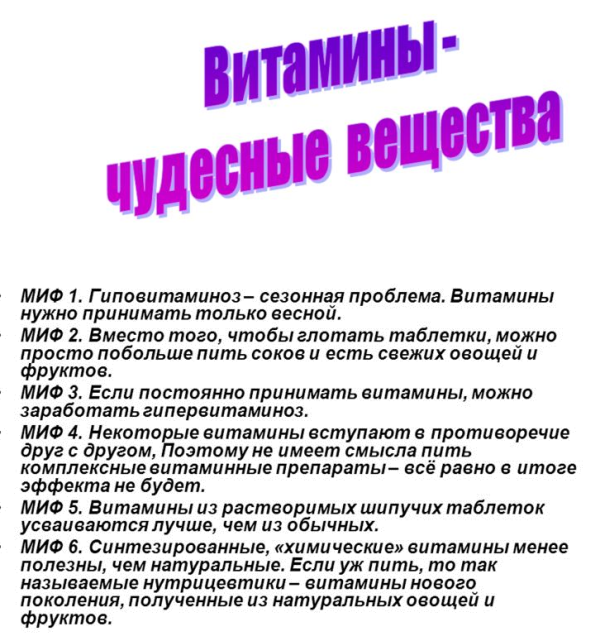
Now we have the opportunity to buy fresh fruits and vegetables all year round. But in autumn and winter we rarely eat them in fresh, and in the process of heat treatment, many vitamins are partially or completely destroyed. The same, albeit more slowly, occurs during the storage of vegetables and fruits. For example, after 3 days of storing food in the refrigerator, about 30% of vitamin C is lost. room temperature- all 50%. In autumn and winter, we mainly eat vegetables and fruits grown in greenhouses, and they contain less vitamins than in soil. But that's not all.
Not all the vitamins we need are found in fresh vegetables and fruits. There is vitamin C, there are carotenoids, from which vitamin A is produced in the body. But there are not enough B vitamins. Their source is lean meat, kidneys, liver, and cereals with a shell - black and white bread with bran, buckwheat, millet, oatmeal.
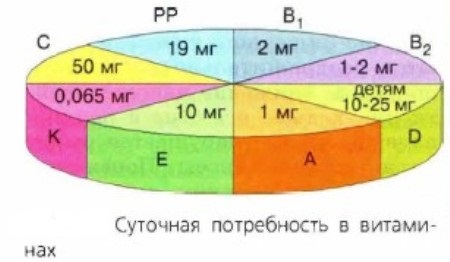
According to research by French nutritionists, in order to satisfy our needs for vitamin C alone, we should eat 5-6 servings of salads or 5-6 fruits per day. Do you eat 6 oranges every day? The daily norm of B vitamins is contained in 400 g of lean meat and 1.3 kg of black bread. Who eats so much meat and black bread? The conclusion is simple: to provide yourself with the necessary norm, you need to take vitamin complexes.
Even if a person fully eats and follows the regimen, in the fall his body will experience a special lack of vitamins and minerals. That is why absolutely all people need vitamin complexes: their intake improves health and strengthens immune system, due to which the likelihood of colds is significantly reduced.
When to start drinking vitamins in the fall and what vitamins you need to drink
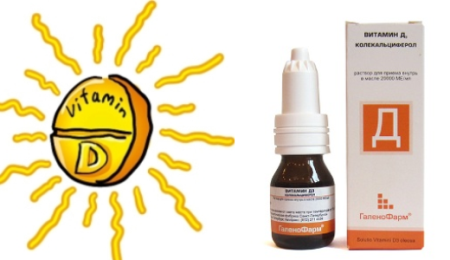
Vitamin intake should be started as needed, but it is best to prepare the body for cold weather in advance, i.e. beforehand. from mid September. The exact time does not really matter, but you should not delay it either: it is desirable that in the cooler months the body is already strengthened.
As mentioned earlier, the most popular vitamins for beriberi in the fall are those that belong to groups A, C and E. It is important to remember that vitamin A, unlike most others, is not excreted from the body, which can lead to complications, therefore special care must be taken when taking it.
In autumn and winter, you should definitely take vitamin D. If your diet is varied and you do not adhere to restrictive diets, then there is no reason to suspect an acute deficiency of other vitamins. But there are very few sources of vitamin D in food, because our body is adapted to synthesize it under the influence of the sun, which is not enough in central Russia even in summer (especially if you spend most of your time indoors).
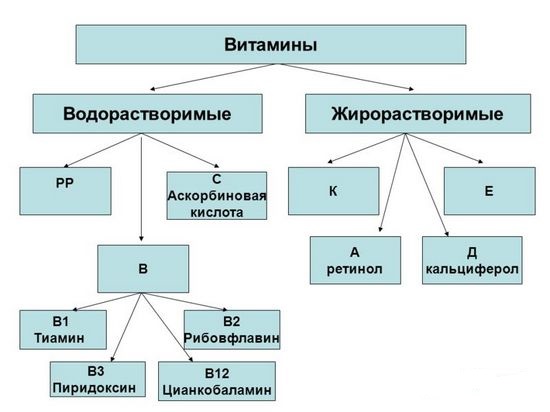
An overdose of vitamin D preparations sold in a pharmacy is extremely unlikely: vitamin D (both from tablets and synthesized in the skin naturally) is physiologically inactive, the body will then decide for itself whether to synthesize the active form or not. Fat-soluble vitamins such as A, D, E, and K are absorbed in the presence of fat, so they must be taken with fatty foods.
Which drug to choose: a review of manufacturers
It is best to take complexes (a combination of several minerals), and not individually. An excellent choice would also be multivitamin preparations, which include micro and macro elements. When choosing a drug, pay attention to these:
Centrum (Centrum)
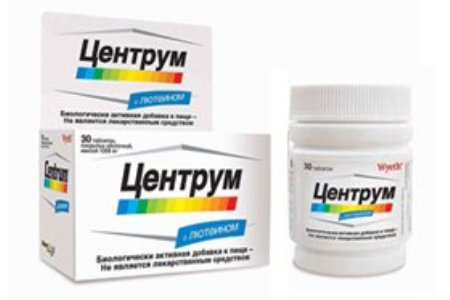
- This complex contains vitamins A, C, D, H, K, B. The composition of the drug includes minerals: potassium, calcium, magnesium, sodium, zinc, chromium, selenium, iodine, copper.
- Centrum is an excellent choice for autumn, as it will cover almost everything. essential minerals and other nutrients.
- Take 1 time per day during or after meals.
- Drink water.
- The course of admission is 20-30 days.
Revit
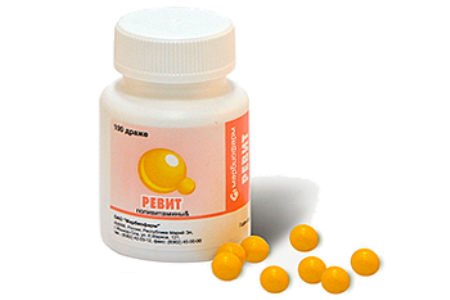
This complex is familiar to many since childhood, and it is not in vain that it is included in our rating “what vitamins to drink in the fall”.
- The composition of the drug includes vitamins C, A, group B.
- It looks like a yellow dragee or orange color, pleasant to taste - sweet and sour.
- Revit is great for kids and adults. Take 3-4 tablets throughout the day.
- Chew or dissolve, do not drink water.
- The course of admission is 15-20 days.
Supradin
Check your body fat percentage, BMI and other important parameters
These Essential Vitamins
Vitamins are essential nutrients, vital necessary for a person, which are not synthesized by the body itself (with the exception of nicotinic acid), their body must receive from food. Vitamins are not a source of energy or building material, like proteins, fats and carbohydrates, but without them metabolic processes in the body are impossible. Vitamins are necessary for a person in very small doses, but the daily physiological need for them is constant and absolute. With a deficiency of at least one vitamin, there may be severe consequences for a person.
In total, there are 13 vitamins, which are divided into fat-soluble and water-soluble. Fat-soluble vitamins can be stored by the body and used as needed, for example, vitamin A can be stored for up to 6 months. And water-soluble vitamins do not accumulate, but are used immediately and then washed out of the body. For this reason, there is a danger of poisoning by repeatedly exceeded doses of fat-soluble vitamins (accumulation of large amounts of vitamins A and D is especially dangerous). While an excess of water-soluble vitamins does not pose much harm, they are simply excreted in the urine, but a deficiency of water-soluble vitamins is much more serious, because the need for them is daily, and the intake can be extremely irregular (for example, during restrictive diets and especially mono-diets). This is why a daily prophylactic multivitamin is so important in an unbalanced diet!
So, fat-soluble vitamins include vitamins A (retinol), E (tocopherol), D (calciferol) and K (phylloquinone). Water-soluble vitamins include C (ascorbic acid), B1 (thiamine), B2 (riboflavin), B5 (pantothenic acid), B6 (pyridoxine), B9 ( folic acid), B12 (cyanocobalamin), PP (niacin or niacin) and H (biotin). Some fat-soluble vitamins can enter the body in the form of their chemical precursors - provitamins (for example, beta-carotene in the body is converted into vitamin A, and a number of other provitamins are converted in the body under the action of ultraviolet rays sun into vitamin D). By the way, each vitamin is represented not by one, but by a whole group of chemical compounds.
In addition to the 13 main vitamins, there are still dozens of vital vitamin-like compounds (the so-called vitamins U and P and many others), without which metabolic processes cannot take place.
Most often and most acutely, there is a prolonged deficiency of vitamins C and A, which are not supplied with food in sufficient quantities. without listing all negative consequences chronic lack of vitamins, let's just say that it is possible to reduce the risk of cardiovascular, oncological, skin and other formidable diseases and complications many times over if well-chosen multivitamin-mineral complexes are regularly used prophylactically: Revit, Complivit, Undevit, Centrum, Gendevit, Decamevit , Glutamevit, AEvit and others.
Note that multivitamins are taken prophylactically, and individual vitamins in special dosages indicated by the doctor are taken as a medicine for diseases. It is unacceptable to take several vitamin complexes at the same time, since the strict physiological balance of vitamins will be disturbed. It is useful in winter and spring only an additional intake of ascorbic acid, but not in excessive doses. This will ensure you feel good and prevent flu and colds.
We do not give the norms for taking vitamins, as they vary greatly for children, women, men, athletes, urban and rural residents, smokers, people who take alcohol or certain medications, for people with health problems (especially with dysbacteriosis) living in areas with unfavorable environmental conditions, for pregnant and lactating women, for the elderly. It is best to carefully choose the type of multivitamin that is appropriate for your age, lifestyle, and health conditions. An additional intake of one or another vitamin can be prescribed by a doctor, so do not get carried away with “vitamin cocktails”. You also need to remember that vitamins are not taken “dry”, they must be washed down with plenty of water for good digestibility, and it is best to take them with food.
IN Lately it has become fashionable to talk about antioxidants - substances that protect the cells of the body from the attacks of free radicals and viruses and thereby contribute to longevity and cancer prevention. Antioxidants really slow down the aging of the body and increase immunity. Of the vitamins, vitamins C, E and A (as well as its provitamin beta-carotene) have pronounced antioxidant properties. Some researchers even recommend multiple doses (relative to the recommended physiological doses) of these vitamins, but such advice is not scientifically sound.
There is a debate about what natural healthy foods healthier than synthetic vitamins. In fact, pharmacy multivitamin complexes often provide better preservation of vitamins, while vitamins in food products are very unstable in storage, especially in the light, and during heat treatment. A tomato on its way from the garden to a delicious tomato sauce can lose 95% of its vitamins. By spring, stale vegetables and fruits retain only fiber, minerals, sugars and organic acids, and the necessary vitamins are not left. In winter, vitamin C is well preserved in kiwi and citrus fruits, and from vegetables in sauerkraut. Better than other methods, quick freezing of foods and their quick preparation, for example, by steaming or in the microwave, preserve vitamins. Sliced for salad and dressed fresh vegetables they quickly oxidize and lose vitamins every hour, as well as the overstayed dish, so that by the time the guests arrive, they no longer have vitamins left, and it is better to throw out the remaining salads for tomorrow. Knowledge of the culinary basics of a healthy diet will help you: for example, the minimum heat treatment time, under the lid and without excess liquid, largely preserves vitamins.
The second argument in favor of vitamin preparations is that our diet is still not varied enough, besides, it’s even good. balanced diet limited caloric content up to 3000 kcal cannot provide a person with vitamins in sufficient quantities. If we eat 6000 kcal daily to cover the need for vitamins, then we will come to obesity, atherosclerosis, diabetes and related diseases. We're not talking about dieters! A modern urban person who cares about health and fulfills his healthy eating program must definitely take preventive courses of multivitamins. However, you should strive for a complete and varied healthy diet.
Briefly list the sources of vitamins that come with food.
Vitamin A and its provitamin beta-carotene are found in green and yellow vegetables (carrots, pumpkin, cabbage, parsley, sweet peppers), fruits, berries, herbs, rose hips, oats, as well as in animal products: liver, egg yolk, fish, caviar and fish oil, in butter, sour cream, cheese. Vitamin A is an antioxidant, it is necessary for the immune system, for the good condition of the skin, bones and teeth, good vision, fast healing wounds. The need for vitamin A cannot be covered by food, so it needs to be supplemented.
B vitaminsparticipate in the most important metabolic reactions, have anti-stress properties, prevent diseases of the cardiovascular system, stomach, liver. Some of them slow down the aging process. natural complex vitamins of this group are brewer's yeast, which can be bought at pharmacies, then oatmeal, unrefined cereals and animal liver.
Vitamin B1 is an antioxidant and slows down the aging process. It is found in cereals and wholemeal flour, yeast, bran, wheat germ, vegetables and fruits, nuts and herbs, berries, rose hips, as well as meat, liver, fish, poultry, egg yolk.
Vitamin B2 very important for good vision, it is found in yeast, bread, cereals, leafy green vegetables, peas, as well as in meat products, fish, eggs, milk, cottage cheese, cheese.
Vitamin B5 found in buckwheat and oatmeal, yeast, peas, hazelnuts, green leafy vegetables, as well as in milk, egg yolk, fish roe, chickens, beef offal. It is involved in almost all metabolic processes and protects against arthritis, allergies, heart disease.
Vitamin B6 found in grains of cereals, cereals, yeast, seeds, leafy vegetables, carrots, cabbage, potatoes, bananas, walnuts, soybeans, as well as in meat, fish, seafood, poultry, eggs. Helps protect the body from infections and various harmful effects from the environment, contributes to the "withdrawal from hard drinking".
Vitamin B9 found in green vegetables, legumes, yeast, bread, cereals, nuts, mushrooms, fruits, as well as meat, fish, poultry, dairy products, egg yolk. The reserves of this vitamin in raw foods are almost instantly destroyed by heat treatment, as well as in combination with alcohol. An additional intake of bifidobacteria is necessary in order for the synthesis of this vitamin in the intestine to occur more efficiently. But folic acid supports the immune system, fights depression and plays an important role during pregnancy and after childbirth, it is called the main female vitamin.
Vitamin B12 found in seaweed, soy products, yeast, as well as in meat products, fish, poultry, eggs, milk, cheese. This vitamin is able to partially accumulate in the body, it prevents fatty infiltration of the liver and corrects fat metabolism, preventing atherosclerosis and fat deposition in body tissues. Vegetarians often suffer from a deficiency of B vitamins, so they need to additionally take vitamin B complex preparations. It is even better to introduce dairy products, cheese, butter, eggs into your diet, that is, do not eat grass exclusively.
The most famous vitamin C It is extremely important for health and longevity, but almost everyone has a deficiency. It is found mainly in raw plant foods - fresh fruit, vegetables, berries, wild rose, herbs. In sufficient quantities, it is obtained from food only by vegetarians and people who are fond of a raw food diet. Modern townspeople have lost the habit of the required amount of raw vegetables in the diet, and apples and a pinch of parsley are completely insufficient. Nutritionists recommend starting every meal with a bowl of raw vegetable salad. Famous historical fact that the sailors of Columbus, during their many months of voyages, were saved from scurvy sauerkraut, which was plenty on their ships. Vitamin C is not stable and is rapidly destroyed during storage and cooking. At the same time, vitamin C is quickly consumed by the body, and it is also extremely important for health, as it belongs to antioxidants. Therefore, it is recommended in autumn, winter and spring to take ascorbic acid preparations daily two or three times a day in addition to multivitamin complexes. Vitamin D is formed in the tissues of animals and plants with ultraviolet radiation. It is found in fish oil, caviar, liver, egg yolk, butter, fatty dairy products. Vitamin D is both a vitamin and a hormone. It is responsible for calcium absorption and bone strength. It protects the body from diseases such as atherosclerosis, osteoporosis, cancer, diabetes, arthritis, heart disease. It is necessary for the functioning of the thyroid gland, to increase immunity. It is given to children without fail, starting from infancy, as a prevention of rickets. Vitamin D should be taken with calcium supplements!
Vitamin E refers to powerful antioxidants - vitamins of healthy longevity. It is responsible for reproductive function, good eyesight, skin, elastic capillaries, supporting the body's immune system and preventing cancer. Vitamins of groups E and A are sometimes called beauty vitamins, as they make a person younger: the skin and hair shine, the skin becomes elastic and smooth, the eyes shine. All contain a lot of vitamin E vegetable oils and wheat germ.
Vitamin PP - nicotinic acid - in medicine it is considered a medicine, it helps to reduce the level of "bad" cholesterol in the blood. It treats diabetes, arthritis, cardiovascular diseases. Found in yeast, beef liver, fish, eggs, cheese, milk, peanuts, cereals, tomatoes, carrots, potatoes, cornmeal, oats, parsley, mint.
Vitamin K (fat-soluble, synthetic), the so-called antihemorrhagic, it is responsible for normal blood clotting. Contained in cereals and vegetables, green tea and rose hips, but in small quantities, so it is included in the composition of vitamin complexes.
And the last of the vitamins is biotin, or vitamin H. . There is a lot of it in beans, peanuts, peas, cabbage, champignons, and especially a lot in the liver and fish. While taking antibiotics, an additional intake of biotin is necessary. It is responsible for the normal content of cholesterol in the blood, good dream, elastic skin, normal level blood sugar.
A review of all this information about vitamins leads us to the conclusion that modern man with its low energy consumption and the prevailing XXI century the nutrition system should take vitamin complexes suitable for him. About a hundred years ago, the energy consumption of people due to hard physical labor was much higher. For example, to get the required daily intake of vitamin B1 of 1.4 mg, you need to eat 700-800 g of wholemeal bread or a kilogram of lean meat. The diet of a soldier of the Russian tsarist army, whose daily energy consumption reached 6000 kcal, included 1300 g of black bread and 430 g of meat daily. No one today can afford such a "diet" without compromising health!
Without a doubt, health, general tone and vital activity of a person depend, first of all, on nutrition. With the food we eat, we get what we need. nutrients, macro- and microelements. The health of internal organs depends on the presence of a diet, the condition skin, as well as vivacity and good health.
Particular attention should be paid to the vitamin diet to maintain health and beauty. The lack of certain vitamins can result in the development serious illness. Food products contain the most necessary substances to maintain a common vitality. But sometimes you have to make up for their deficiency with special preparations - vitamin complexes.
Vitamin A. Retinol or occupies important place in the formation of bone mass, teeth, and body fat. It participates in the oxidative processes of the body, improves metabolism, supports the immune system. The lack of retinol affects, first of all, the hair and skin: cracks appear on the skin, it dries and peels a lot, the hair splits at the ends, and becomes brittle. Vitamin A is essential for maintaining vision and the heart system. Its reserves in the human body can last for a long time, so they do not need to be replenished daily. On the contrary, an excess of retinol is not desirable: the skin gradually acquires a yellowish tint.
Daily rate vitamin A intake for female body is 700 mcg / day, for men - 900 mcg / day. Retinol is found in in large numbers in red vegetables yellow color, in legumes (peas and soy), in some herbs (nettle, fennel, parsley, oats, burdock, peppermint) and fruits (peach, apple, melon, apricot). Particularly rich in vitamin A are the liver and fish fat.
Vitamin C. Ascorbic acid or can be called the most important for healthy human life. It activates the production of collagen and serotonin, promotes the breakdown of cholesterol. Vitamin C supports and strengthens the immune system. During the course of acute viral diseases, ascorbic acid is indicated for use in larger quantities than usual. To fight the body against the virus, foods containing vitamin C are often not enough: you need to additionally take a vitamin complex in tablets, dragees or capsules. Ascorbic acid promotes the detoxification process. It also has a positive effect on the skin and hairline, bone structure and muscle tissue.
Vitamin deficiency affects, first of all, the skin: it becomes pale, dry. Hair with beriberi grows dull, split and fall out in large quantities. There are changes in general physical condition: more and more worried about the feeling of fatigue, drowsiness. An excess of the vitamin can cause bouts of diarrhea, nausea, pruritus. Foods containing vitamin C in large quantities: Bulgarian red pepper, kiwi, dill, Brussels sprouts, citrus fruits. The daily norm for the female body is 75 mg / day, for the male - 90 mg / day.
Vitamin D Vitamin D enters the body through food, thanks to products such as fish oil, egg yolk, caviar, butter and some types of mushrooms. True, providing them with the body cannot be carried out without sufficient exposure to the sun. It is under the action of ultraviolet rays that active substances are synthesized.
Vitamin D deficiency leads, in most cases, to the development of rickets, because it ensures the absorption of calcium from food by the small intestine. In addition, the vitamin is involved in the activation metabolic processes and the synthesis of certain hormones.
Vitamin E. Tocopherol or plays one of important roles in the development of a healthy life of the body. It takes an active part in strengthening the immune system, has an antioxidant effect. Tocopherol is necessary for the beauty and health of the skin, as well as for the activation of metabolic processes. Hypovitaminosis can be observed in premature babies.
Vitamin deficiency occurs most often in people exposed to radionuclides, chemical toxicants. The consequences can be very different: from infertility to liver necrosis. An excess of the vitamin can cause severe poisoning, an increase in blood pressure.
Vitamin R. A number of substances called flavonoids belong to the P vitamins. Their main function is to ensure the permeability and elasticity of blood vessels. Vitamin P is found in foods such as citrus fruits, especially lemon, rose hips, green tea, walnuts and some berries (red mountain ash, black currant), as well as cabbage, tomatoes, grapes, buckwheat and lettuce. With a deficiency of flavonoids in the body, various kinds of hemorrhages, pain and swelling in the legs, a bluish tint of the skin, acne and bleeding gums.
Each of the above vitamins performs its assigned role in the formation and development of a living organism. If you provide yourself with a complete vitamin diet every day, then you will be much less likely to worry about various kinds of diseases. Be healthy!
